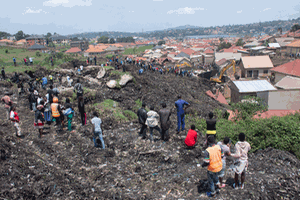Prime
Experts root for data use in tourism sector

Tourists enjoy a boat cruise at Murchison Falls National Park. Experts say the lack of data put several Uganda tour operators and businesses in a quandary after the Covid-19 pandemic. PHOTO/FILE
What you need to know:
- Experts said the country needs to leverage technology to facilitate a robust data management framework. This could range from the adoption of modern data analytics tools to deploying an integrated data management system that enables the consolidation, analysis, and sharing of data among all stakeholders seamlessly.
Uganda must gain mastery over inadequate data to foster advancement in her tourism sector, experts have said.
Amos Wekesa, the owner of Great Lakes Safaris Ltd, admitted to the inadequate data, which Abel Muhereza Kyamutetera—another player in the tourism sector—attributed to “information exist[ing] … in silos, making it difficult to access nor use.”
According to observers, this has translated into ineffective strategies, financial losses, and missed opportunities for the sector.
The lack of access to reliable and comprehensive data often results in policy decisions made on assumptions rather than facts.
Unreliable data
Jefferson Nzundi Bwambale, a partnerships specialist, had the opportunity to analyse the 2023 Tourism Satellite Account released by the Uganda Bureau of Statistics, only to be surprised that the basis for the report is data collected in 2019.
“How can you plan for post-Covid with data collected during pre-Covid? The pandemic changed many things, tourism inclusive,” Mr Bwambale reasoned, adding, “Data from 2019 can only be referenced or compared with, but not a basis for post-Covid strategies.”
The absence of data related to tourist demographics, spending habits, preferences, or behaviour can prevent tourism businesses from adequately strategising their marketing efforts or developing products and services that cater to tourists’ needs and expectations.
Mr Wekesa, who was one of the 2023 Rwenzori Marathon organisers, revealed that “the marathon gathered about 2,000 people.”
He added that “it reached an extent where locals couldn’t sleep in their own houses, just because they had rented them to visitors.” This, he proceeds to disclose, “gave us a lesson that next year, when we anticipate the number to double, preparations should be data-driven.”
Data deficits
Likewise, inadequate data can also hamper the government’s ability to effectively plan and invest in infrastructure and services that are essential in supporting the tourism sector.
“If you asked the Uganda Tourism Board how much returns are there on every shilling the government funds them, it would be near to impossible putting a hand on that,” Mr Kyamutetera noted.
He added: “But if you can’t account for the money invested in you, it is most likely you won’t be funded handsomely … the funder would rather put that money in google ads.”
One area significantly affected by data insufficiency is the ability to effectively respond to and manage crises. The recent Covid-19 pandemic serves as a prime example. The lack of data put several Uganda tour operators and businesses in a quandary, as they were left guessing the best ways to remodel their operations to deal with the crisis and ensure business survival.
It would remain a question of how data could be effectively gathered, wielded, and shared to leverage Uganda’s tourism sector as a significant contributor to the country’s economic growth.
“The first step towards solving the data dilemma in Uganda’s tourism sector is by prioritising data collection,” Dr Martin Gordon Mubangizi, head of the United Nations Global Pulse, Uganda office, said, adding: “Both public and private entities need to invest in comprehensive methodologies that maximise data collection efficiency. These methodologies could range from mobile-based surveys, online feedback forms or review platforms, and IoT technologies deployed in tourist hotspots.”
The dos, don’ts
Once data is collected, Dr Mubangizi said, there is a need for proper data interpretation and analysis. This process should also include developing metrics that matter most to the tourism sector, such as visitor expenditure, visitor satisfaction, length of stay, and repeat visitation.
Using an example from Rwanda, Mission Africa Safaris noted in an article that because of the surge in tourists interested in gorilla trekking, dynamic pricing systems for permits are enforced. The article argues that the principle of demand and supply may apply here, but one would contend it is data at play.
The principal objective is to translate the raw data of the increasing gorilla trekkers into meaningful insights that can inform decision-making at both operational and policy levels. The same could be likened with the recent changes in UK’s visa policies.
Another essential aspect in the processing of data for tourism is data sharing.
This culture is, however, not deeply ingrained in Uganda’s tourism ecosystem.
“It is a selfish culture, but mostly people in the Ugandan private sector mention first that: what if they share data with you and you use it to compete with them? Second: what if this data is leaked to the taxman?” Mr Bwambale said.
Implications
Amos Wekesa, the owner of Great Lakes Safaris Ltd, noted: “It is saddening for a tourist to go to a hotel in Jinja and not be informed of the tourist spots in the city. This only confirms Makerere University’s research that most tourists under-spend by almost 60 percent of their intended expenditure.”
Therefore, promoting data sharing between the various stakeholders in the sector, including the government, tour operators, hotels, travel agencies, and even tourists themselves, is crucial.
Experts also added that the country needs to leverage technology to facilitate a robust data management framework. This could range from the adoption of modern data analytics tools to deploying an integrated data management system that enables the consolidation, analysis, and sharing of data among all stakeholders seamlessly.
“Promoting a good image of the data lifecycle is key. Most of these big companies spend almost half of their expenditure on communications or public relations and marketing because they know mass awareness of the system leads to mass engagement. So if we don’t promote data in tourism, we are wasting time,” Mr Jefferson Nzundi Bwambale, a partnerships specialist, said of the importance of digital literacy.




